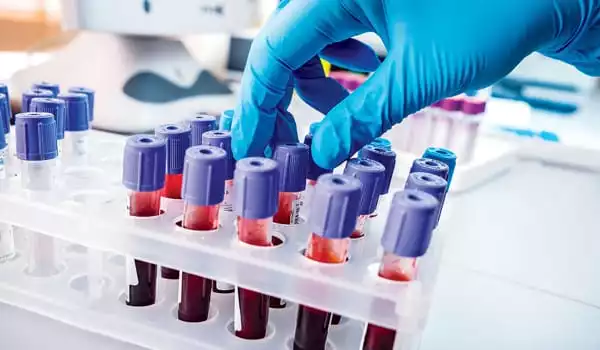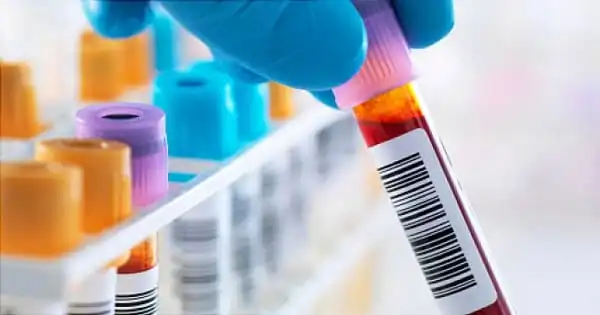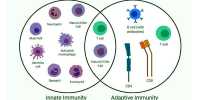A recent study published by Donna Wilcock, Ph.D., the Robert P. and Mildred A. Moores Endowed Chair in Alzheimer’s Disease at the University of Kentucky, shows promising results for a blood test that could be used to identify Alzheimer’s changes in the brain before the onset of any symptoms, potentially leading to preventative treatments being used before any memory loss.
The researchers note in their paper, which was published in Alzheimer’s & Dementia: The Journal of the Alzheimer’s Association, that the detection of disease-causing pathology associated with Alzheimer’s disease and Vascular Contributions to Cognitive Impairment and Dementia (VCID) is limited to cognitive evaluations and neuroimaging such as MRI and PET scans. Blood-based biomarkers of disease are now available as a result of recent technical advances, and the Sanders-Brown team believes they could be useful in the diagnosis of Alzheimer’s and other dementias. A biomarker, or biological marker, is a quantitative sign that captures what is going on in a cell or organism at any given time.
Zachary Winder, an MD/PhD student at the University of Kentucky College of Medicine, led the Wilcock lab’s work, which used an extensive bank of samples from UK’s Alzheimer’s Disease Research Center autopsy cohort, which consists of Kentucky residents who have agreed to donate their brains at the time of death. Researchers identified samples from patients who had their blood drawn and banked within two years of their death for this study. They next examined blood samples from 90 people for a variety of proteins in order to uncover biomarkers in the blood that could predict changes in the brain that may have contributed to dementia.
Inflammatory protein indicators in the blood were likewise linked to increased levels of amyloid plaques in the brain. We also looked at proteins that could be linked to damage to the brain’s blood vessels. We discovered that inflammatory markers in the blood were linked to brain blood vessel damage.
Zachary Winder
They feel that these findings justify further research into blood-based biomarkers as a clinical screening tool for Alzheimer’s and VCID. “This research shows that a blood test can be used to determine the presence of Alzheimer’s disease alterations and blood vessel damage in the brain. We discovered proteins in the blood that signify protein abnormalities, as well as alterations in the brain that are known to cause dementia. Higher levels of pTau181 and lower levels of beta-amyloid in the blood imply Alzheimer’s amyloid plaques in the brain “Wilcock, an associate director at Sanders-Brown, agreed.
“Inflammatory protein indicators in the blood were likewise linked to increased levels of amyloid plaques in the brain. We also looked at proteins that could be linked to damage to the brain’s blood vessels. We discovered that inflammatory markers in the blood were linked to brain blood vessel damage.”

Wilcock, Winder, and the rest of the research team agree that developing biomarkers that allow doctors to diagnose and monitor patients is a critical step toward identifying at-risk but not yet symptomatic patients who may respond better to potential therapeutics.
“Blood samples may be acquired simply, even during routine medical appointments. The development of a blood test would eliminate the need for costly, specialist PET scans as well as invasive, painful spinal taps” Wilcock stated.
“A blood test for Alzheimer’s provides a major boost for Alzheimer’s research and diagnosis, drastically reducing the time and cost of selecting individuals for clinical trials and driving the development of novel treatment options,” said Bateman. “As new medications become available, a blood test might be used to assess who would benefit from treatment, including individuals in the very early stages of the disease.”
Researchers have long sought a low-cost, widely accessible blood test for Alzheimer’s disease as an alternative to the costly brain scans and invasive spinal taps now used to determine the presence and progression of the illness within the brain.
Researchers discovered through autopsy that there are multiple causes of dementia and that proteins in the blood are linked to brain alterations thanks to the community-based cohort in the United Kingdom. They feel that these findings provide more evidence that blood biomarkers have a high potential for diagnosing Alzheimer’s disease and other forms of dementia.
Until recently, the only way to identify if someone had Alzheimer’s or a similar dementia was to do an autopsy after death. Advances in biomarker research, such as this latest Sanders-Brown study, are allowing researchers to see changes in the brain while people are still alive, track illness progression, and assess the efficacy of prospective treatments.
















